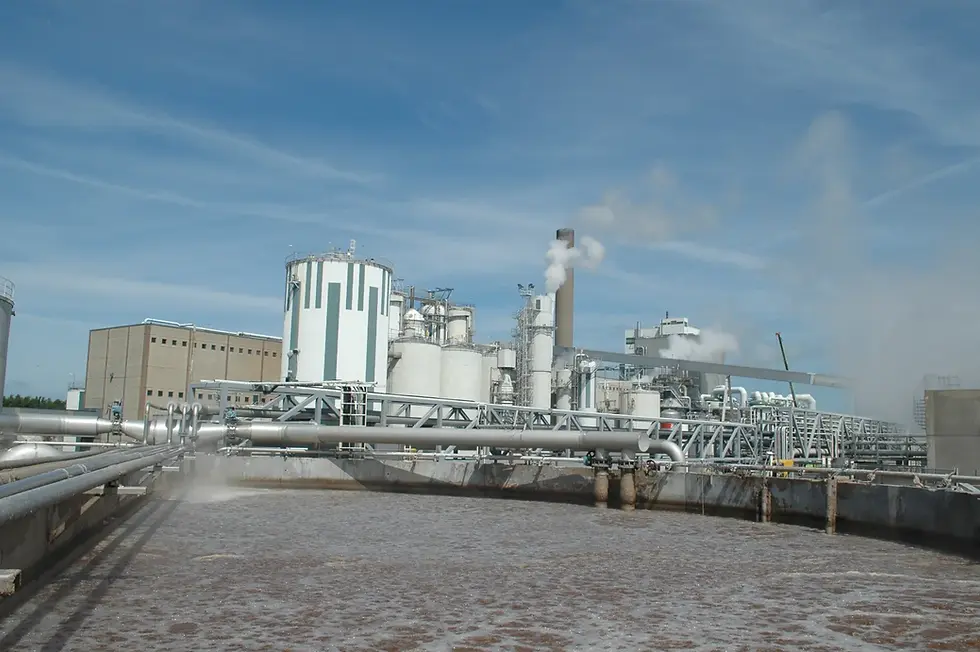Sulzer and ANDRITZ Power World’s Largest Biomethanol Plant in Finland
- jesusrangel3
- Jun 23, 2025
- 3 min read

Introduction
In a landmark collaboration set to redefine sustainable fuel production, Sulzer and ANDRITZ have joined forces to enable the production of 12,000 tons of biomethanol annually at the world’s largest facility of its kind.
The new plant, operated by Veolia and integrated into Metsä Fibre’s bioproduct mill in Äänekoski, Finland, harnesses cutting-edge separation and purification technologies to convert pulp mill waste into high-value, commercial-grade biomethanol.
A New Era for Sustainable Fuel
The Veolia plant in Äänekoski is pioneering the large-scale conversion of raw pulp mill waste into biomethanol a versatile, low-carbon fuel suitable for the transportation, chemical, and pulp and paper sectors. Sulzer’s advanced separation technology and flow equipment are central to this process, ensuring the removal of large volumes of impurities from the biomethanol feedstock.
This enables the production of Grade AA biomethanol, which meets even the most stringent industry standards.
ANDRITZ’s Kraftanol™ biomethanol purification concept, developed as part of the CircleToZero initiative, is integrated with Sulzer’s ECR separation technology. Together, they transform what was once considered waste into a profitable, sustainable resource. The process is designed for maximum efficiency, supporting circular production practices and generating new revenue streams for Veolia.
Technology Driving Circularity
The CircleToZero initiative is a holistic approach to achieving zero emissions and zero waste in pulp production. By leveraging Sulzer’s separation technology, ANDRITZ can purify crude sulphate methanol a byproduct of pulp manufacturing into commercial-grade biomethanol.
This not only reduces the environmental footprint of pulp mills but also provides a new source of fossil-free fuel for a wide range of industrial applications.
Veolia’s plant will be the largest of its kind globally, with an annual output of 12,000 tons of biomethanol.
The integration of Sulzer’s process pumps ensures smooth and reliable plant operation, while the biomethanol produced can be used in downstream chemical manufacturing or as a biofuel, supporting Europe’s decarbonization ambitions and contributing to energy security.
Industry Leaders Reflect on the Partnership
Sulzer Chemtech Division President Uwe Boltersdorf highlights the significance of this collaboration:
“Our market-leading technologies and products advance both sustainable energy and circular practices. Sulzer’s innovations are designed to enable efficient processes in support of bio-based and renewable manufacturing.”
ANDRITZ Sales Director Jaakko Wallenius adds:
“We are delighted to see our concept contributing to the construction of the world’s largest facility for renewable methanol purification within a pulp mill. Our successful collaboration with Sulzer spans several years on a number of projects, and we anticipate continuing this partnership to deliver state-of-the-art circular infrastructures in the future.”
Environmental and Economic Impact
The Äänekoski project is a model for sustainable industrial transformation. By utilizing pulp mill side streams, the plant will help avoid up to 30,000 tons of CO₂ emissions annually. The approach is scalable and can be replicated at approximately 80% of pulp mills worldwide, potentially unlocking an additional 2 million tons of CO₂-neutral biomethanol feedstock for biofuel production.
This initiative not only supports the European Green Deal’s decarbonization goals but also demonstrates the economic viability of circular production models. Veolia’s biorefinery project, developed in close cooperation with Metsä Fibre, illustrates how industrial partnerships can drive ecological transformation and local energy sufficiency.
Looking Ahead
The Sulzer-ANDRITZ-Veolia collaboration sets a new benchmark for sustainable manufacturing. By combining advanced separation and purification technologies with a commitment to circularity, the partners are enabling the production of high-quality, fossil-free biomethanol at an unprecedented scale. This project paves the way for a future where industrial waste is transformed into valuable, low-carbon resources, supporting both environmental and economic sustainability.
Contact us to learn more about our advanced separation solutions and sustainable process technologies.




